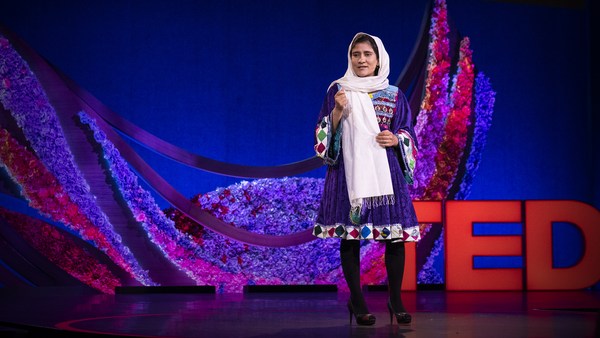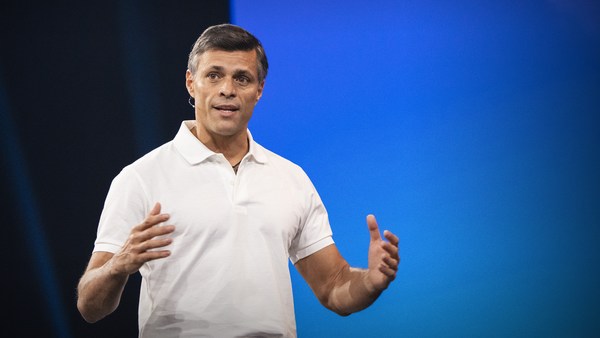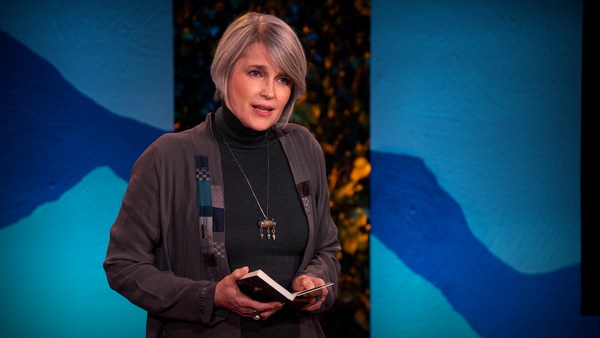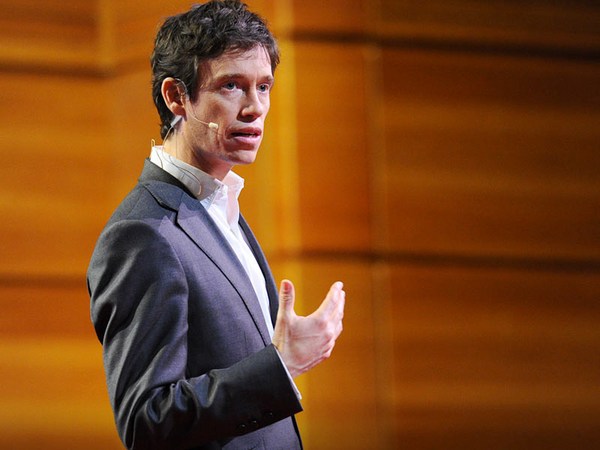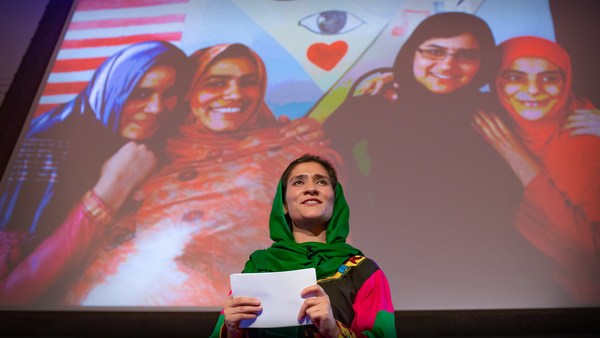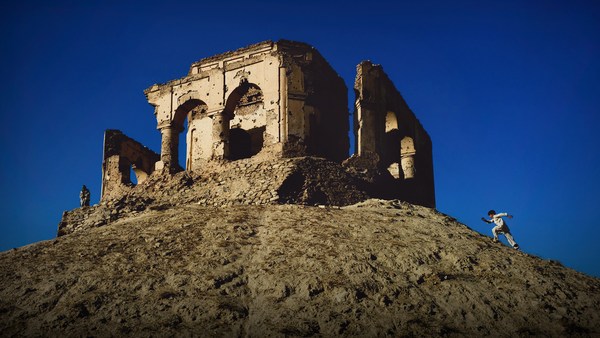Video: (Singing in Farsi)
(Speaking in Farsi)
(Applause)
Chris Anderson: Hello, Nila. Welcome to the TED stage.
Nila Ibrahimi: Thank you so much, Chris. Thank you for having me.
CA: This happens when you come to Vancouver.
NI: I'm really honored to be here. CA: What were you singing?
NI: The song was saying -- It's really hard to translate it right now, but it's mostly encouraging other girls to go to school. It's encouraging education. At this time, I thought that was the closest song to protest against the decision that banned girls from singing in public. So yeah, I didn't know that two or three months after girls would be banned from education.
CA: Before they were banned from education, though, the video had an impact. Other people released videos. There was support. What happened? Wasn't that singing ban then reversed?
NI: So this happened. The decision was announced that girls over the age of 12 can't sing in public in March of 2021. If I'm right. After the movement "I'm My Song," I joined the movement and so did the other brave girls of Afghanistan. And it was two or three weeks after that the decision was reversed, after our efforts and the efforts that the media put in in getting our voice across to the world.
CA: Wow.
(Applause)
CA: But then something shocking happened after that.
NI: I didn't know two or three months after that Afghanistan would fall into the hands of Taliban. It was surreal, and it's really hard to talk about it every time. I’ve started my journey of activism right after that moment, when I discovered that my voice can be heard, and I discovered the power of my voice through standing up against that decision. But when Afghanistan fell, I felt like that power was taken away from me. So I had to fight for that, to regain it.
CA: So I told the story wrong. The initial ban, the singing ban, was before the Taliban came to power. You found your voice. They came to power. And ... Tell us your story. What happened next?
NI: The Taliban came August 15. That was the day I was about to have my last mid-year exam, the day after that, August 16, which did not happen. I was just busy studying for my exams, Arabic and Pashto, and the rumors spread out, and my mom suddenly started burning all of the documents that we had of my deceased father, and my siblings, who were studying in the American university and working at the United Nations.
It was surreal in a way that I never thought that could happen, all of a sudden, in just one day. All of that power, all of the things that we had worked so hard for, could be taken away from us in just seconds and just minutes. And that the power that I thought I had, the power, the confidence I gained from posting that video, it was all taken away from me. It was all shattered. So I thought I had to regain that power by getting out of the oppressed Afghanistan that now is being ruled by Taliban.
CA: So you were able to escape. How did you get out?
NI: That's a long story, actually. So five days after the fall, we went to Pakistan to hide and escape. Our family's background put us in danger and, amazingly, we found 30 Birds Foundation, which helped us resettle in Canada after waiting in Pakistan around eight, nine months. The time I spent in Pakistan, that has its own surreal story, but I'm just really glad to have the opportunities that I think every single woman should have. And I just wish that Afghan girls can regain their power and their voice, just like I have.
(Applause)
CA: Well. Nila, here you are on the TED stage. You've been using your voice to raise awareness on this issue. I'd like to -- see that red light there? That's a camera, right there. I'd love you to just come to the middle of the stage and give your message to the Taliban government in Afghanistan. Whatever you want to say to them, here at TED. I'm going to step out and give you the stage for a minute.
NI: For the Taliban. I'm not angry. I never have been. But you don't know who you're up against. People like me, the girls that I know, the girls that I've been interviewing through my work at Her Story, the girls who have been displaced and the girls who are now living in Afghanistan under the oppression, without any resources and without any access to education, they're still fighting. They have not given up. And that is what I want to share about Afghan girls. That is what makes us different, and that is what should be supported and appreciated and heard.
Thank you.
(Applause)
